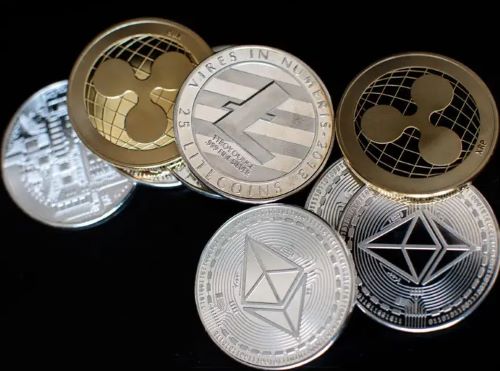

In the dynamic and constantly changing world of cryptocurrency, Bitcoin holds a position of paramount importance as a pioneering and revolutionary concept. Nevertheless, it no longer remains the exclusive contender within the realm of digital currencies. A diverse array of alternative coins, often referred to as “altcoins,” have surfaced, each possessing distinct attributes, serving specific purposes, and maintaining intricate connections with Bitcoin. This all-encompassing manual takes a deep dive into the panorama of cryptocurrencies, meticulously examining the complexities surrounding altcoins and intricately unraveling their multifaceted interactions with the groundbreaking Bitcoin. It is important to note the relationship of Altcoin with Bitcoin, but besides this try upgrading to Chrominator which is an online trading platform based on cutting-edge technology.
What Are Altcoins?
Altcoins, a contraction of “alternative coins,” encompass a diverse range of cryptocurrencies that exist alongside Bitcoin. The emergence of altcoins was driven by the growing awareness of blockchain technology and the possibilities offered by digital currencies. Unlike Bitcoin, each altcoin is designed with a specific objective in mind, whether it’s to rectify perceived shortcomings in Bitcoin’s functionality or to cater to the unique requirements of specific market segments.
Well-known altcoins such as Ethereum, Ripple, Litecoin, and Cardano are just a few examples among a myriad of alternatives. Ethereum introduced smart contracts and a platform for decentralized applications, while Ripple focused on enabling seamless cross-border transactions. Litecoin aimed to enhance transaction speed and Cardano sought to incorporate a more academically rigorous approach to its development. These altcoins showcase the innovative spirit of the cryptocurrency space, continually pushing the boundaries of what blockchain technology can achieve.
The Purpose of Altcoins
- Diversification of Functionality with Ethereum (ETH)
Ethereum, often considered the pioneer of smart contracts, introduced a groundbreaking feature to the cryptocurrency landscape. Smart contracts enable programmable and self-executing agreements, eliminating the need for intermediaries. This innovation has spurred the development of decentralized applications (DApps) across various industries, from finance to supply chain management.
- Swift Transactions with Ripple (XRP)
Ripple focuses on real-time gross settlement systems and currency exchange. Its primary goal is to provide fast and cost-effective cross-border transactions, making it a valuable tool for financial institutions and remittance services.
- Privacy and Anonymity with Monero (XMR)
Monero prioritizes privacy and anonymity, ensuring untraceable transactions. Its advanced cryptographic techniques shield transaction details, making it the preferred choice for users who prioritize confidentiality.
The Interplay Between Altcoins and Bitcoin
Altcoins don’t exist in isolation; they share an intricate relationship with Bitcoin, often referred to as the “digital gold.” Here’s how they interact:
- Market Trends and Sentiment
The prices of altcoins are frequently swayed by the fluctuations in the price of Bitcoin, the foremost cryptocurrency. When Bitcoin undergoes bullish trends, altcoins generally exhibit similar behavior, and the reverse is also true. This phenomenon is rooted in the prevailing sentiment within the cryptocurrency market, where the performance of Bitcoin establishes a precedent that other coins tend to mirror.
- Technological Advancements
Altcoins often bring forth novel functionalities designed to surpass Bitcoin in certain aspects. Take Ethereum’s smart contracts, for instance, which have expanded the capabilities of blockchain beyond Bitcoin’s initial blueprint. These progressive developments foster a robust competitive environment and propel the advancement of the entire cryptocurrency ecosystem.
- Diversification and Investment
Many investors choose to diversify their investment portfolios by incorporating a combination of Bitcoin and different types of altcoins. Bitcoin is commonly utilized as a means to preserve value over time, functioning similarly to a digital store of value. On the other hand, altcoins present the potential for greater growth opportunities. It’s important to note that this strategy of diversification is not without its drawbacks, primarily stemming from the inherent volatility of the cryptocurrency market.
Selecting the Right Altcoins
When considering investment in altcoins, it’s crucial to conduct thorough research. Here are some factors to consider:
- Purpose and Use Case
Understand the specific problem the altcoin aims to solve. Does it bring a unique feature to the table, or is it a mere copycat of existing projects?
- Team and Development
Assess the team behind the altcoin. Do they have a credible track record in the cryptocurrency space? Active and transparent development teams are indicators of a healthy project.
- Market Demand
Research the demand for the altcoin’s use case. Is there a genuine need for its functionalities? A strong market demand can contribute to long-term sustainability.
Conclusion
Altcoins offer diverse functionalities that address various needs, from smart contracts to privacy-focused transactions. While Bitcoin remains the flagship cryptocurrency and a store of value, altcoins drive innovation and competition in the digital currency space. When considering altcoin investments, diligent research and an understanding of their purpose are crucial for making informed decisions.


